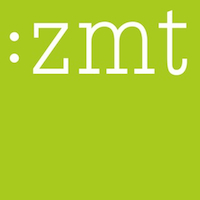| Pages in topic: [1 2 3] > | What’s wrong with saying ‘Hope you are well’ in work emails? Thread poster: Nikita Kobrin
|
|---|
Nikita Kobrin 
Lithuania
Local time: 13:02
Member (2010)
English to Russian
+ ...
Judith Humphrey, a communications expert, argues it’s time to ban this meaningless phrase once and for all.
How often do our workplace communications open with “I hope you are well” or “I trust you are doing fine”?
These “wellness checks” reflect the fact that everybody has become more conscious of the need to be kind to others. That’s a good thing. Our workplace has become a setting where the best bosses and colleagues take pride in showing sensitivity... See more Judith Humphrey, a communications expert, argues it’s time to ban this meaningless phrase once and for all.
How often do our workplace communications open with “I hope you are well” or “I trust you are doing fine”?
These “wellness checks” reflect the fact that everybody has become more conscious of the need to be kind to others. That’s a good thing. Our workplace has become a setting where the best bosses and colleagues take pride in showing sensitivity to the emotional and physical well-being of others.
And for these reasons, beginning a letter or a conversation with “I hope you are well” has some merit. But even if it reflects the best of intentions, this opening should be abandoned for the five reasons about which you can read in the article by the following link:
http://surl.li/nwyjz
Do you agree with Judith Humphrey? I do.
NK ▲ Collapse
| | | | Tom in London
United Kingdom
Local time: 11:02
Member (2008)
Italian to English
Nikita Kobrin wrote: Judith Humphrey, a communications expert, argues it’s time to ban this meaningless phrase once and for all. How often do our workplace communications open with “I hope you are well” or “I trust you are doing fine”? These “wellness checks” reflect the fact that everybody has become more conscious of the need to be kind to others. That’s a good thing. Our workplace has become a setting where the best bosses and colleagues take pride in showing sensitivity to the emotional and physical well-being of others. And for these reasons, beginning a letter or a conversation with “I hope you are well” has some merit. But even if it reflects the best of intentions, this opening should be abandoned for the five reasons about which you can read in the article by the following link: http://surl.li/nwyjz Do you agree with Judith Humphrey? I do. NK
I have never, ever, started a letter or an email with "Hope you are well" or “I trust you are doing fine”, and I don't think I've ever received one either.
What I really want to stop is people telling me to have a nice day.
As far as I can make out, Judith Humphrey is one of those dreadful American"life coach" people. What she says about anything is not important.
[Edited at 2023-12-04 14:07 GMT]
| | | | Samuel Murray 
Netherlands
Local time: 12:02
Member (2006)
English to Afrikaans
+ ...
| It's a cultural thing | Dec 4, 2023 |
Nikita Kobrin wrote:
Judith Humphrey, a communications expert, argues it’s time to ban this meaningless phrase once and for all.
The five reasons by Mrs Humphry don't fly for me. Saying socially acceptable things that are, strictly speaking, entirely meaningless, at the start and end of a communication is just a normal part of Western communication. No-one is arguing that we should not say "Good morning" unless we truly wish that the person we're speaking to would have a good morning. The same goes for "Sincerely" or "Kind regards" -- no-one interprets these statements literally. And although they simply mean "here starteth the message" and "here endeth the message", you won't get far replacing them with that.
Making a personal statement or uttering a blessing of sorts also indicates to the recipient that you wish the communication to have a slightly more personal tone than just a message that communicates the barest of essential facts and nothing else. If a sender doesn't use this phrase, I would not necessarily notice its absence, provided that the tone of the rest of the email is polite and conversational, but I'm not bothered or offended by it either.
| | | | Nikita Kobrin 
Lithuania
Local time: 13:02
Member (2010)
English to Russian
+ ...
TOPIC STARTER | just irritating... | Dec 4, 2023 |
Tom in London wrote:
I have never, ever, started a letter or an email with "Hope you are well" or “I trust you are doing fine”, and I don't think I've ever received one either.
I have never started an email with such phrases either but I receive such messages every other day. I can't say that it bothers me a lot, just irritating a bit...
NK
[Edited at 2023-12-04 14:40 GMT]
| | |
|
|
|
Lucy Leite 
Spain
Local time: 12:02
Member (2008)
English to Portuguese
+ ...
| I couldn't agree more with you, Samuel | Dec 4, 2023 |
Samuel Murray wrote: Nikita Kobrin wrote:
Judith Humphrey, a communications expert, argues it’s time to ban this meaningless phrase once and for all. The five reasons by Mrs Humphry don't fly for me. Saying socially acceptable things that are, strictly speaking, entirely meaningless, at the start and end of a communication is just a normal part of Western communication. No-one is arguing that we should not say "Good morning" unless we truly wish that the person we're speaking to would have a good morning. The same goes for "Sincerely" or "Kind regards" -- no-one interprets these statements literally. And although they simply mean "here starteth the message" and "here endeth the message", you won't get far replacing them with that. Making a personal statement or uttering a blessing of sorts also indicates to the recipient that you wish the communication to have a slightly more personal tone than just a message that communicates the barest of essential facts and nothing else. If a sender doesn't use this phrase, I would not necessarily notice its absence, provided that the tone of the rest of the email is polite and conversational, but I'm not bothered or offended by it either.
I couldn't agree more with you, Samuel. Most of my UK clients will start an email with "I hope you're well today". Most US clients will not. Personally, I do find it nicer to have this personal touch. Working from home, we're already so detached from personal connections at work and I do like when a PM tells me the weather is awful or he's had a baby or is getting married and so on. It's also perfectly fine if they don't, of course, as long as they're polite. The opposite situation would be: "Hello X, Could you please translate these x words for us? Thanks". I've come across a few of those and they're far more concerning than one that starts with an informal greeting.
In fact, one nice thing about our work is that we get to talk to people from different cultures and they will communicate differently. Can't we just accept that without having to set rules to something so trivial as whether someone adds "I hope you're well" or not to an email?
| | | | Lingua 5B 
Bosnia and Herzegovina
Local time: 12:02
Member (2009)
English to Croatian
+ ...
| I like it, but also depends on the rest of the letter | Dec 4, 2023 |
I like "Hope you are well" if it's coming from a professional client and the rest of the letter (and their conduct) is professional. However, it may also come from completely dubious clients, and then I don't like it.
Judith just has a target word count to reach for her article, and she stretches it as much as possible just to meet that target, just filling in the blanks with "whatever" and cliché phrases.
All the "five reasons" and "ten things" articles are just book... See more I like "Hope you are well" if it's coming from a professional client and the rest of the letter (and their conduct) is professional. However, it may also come from completely dubious clients, and then I don't like it.
Judith just has a target word count to reach for her article, and she stretches it as much as possible just to meet that target, just filling in the blanks with "whatever" and cliché phrases.
All the "five reasons" and "ten things" articles are just booked for the cheapest of writers out there without any journalism background. ▲ Collapse
| | | | | I find it irritating | Dec 4, 2023 |
How can people that don't even know me hope more or less sincerely that I am well? Nearly every inquiry I get in English from unknown people starts with this phrase. I believe they couldn't care less whether I am fine or not and in my opinion this phrase sounds simply stereotypical and thus meaningless. Of course the situation is quite different with customers I know, in this case some personal words are really appreciated if they contact me again after some time.
I mean: would you say t... See more How can people that don't even know me hope more or less sincerely that I am well? Nearly every inquiry I get in English from unknown people starts with this phrase. I believe they couldn't care less whether I am fine or not and in my opinion this phrase sounds simply stereotypical and thus meaningless. Of course the situation is quite different with customers I know, in this case some personal words are really appreciated if they contact me again after some time.
I mean: would you say to a person behind a counter or in a shop or whatever that you have never seen before: "good morning, everything ok? I hope you are going well!"? That woud be really strange, wouldn't it?
[Bearbeitet am 2023-12-05 15:19 GMT] ▲ Collapse
| | | | Metin Demirel 
Türkiye
Local time: 13:02
Member (2018)
Italian to Turkish
+ ...
| it doesn't hurt so it's fine | Dec 4, 2023 |
Even the word "hello" could be considered meaningless if we get into its semantics. Writing an article on how it is wrong to say "hope you're well" is pathetic to me. I don't celebrate Christmas but I receive messages wishing me well in the festive season. They are well-intended, so it's fine. I try to do as the Romans do, and maybe those who start an email with a "hope you're well" think I am Roman and they are trying to do as I do.
| | |
|
|
|
| I'd rather get this phrase | Dec 4, 2023 |
Nikita Kobrin wrote:
How often do our workplace communications open with “I hope you are well” or “I trust you are doing fine”?
NK
Than ...
"... Hi dear!"
From people I've never heard of.
| | | | Tom in London
United Kingdom
Local time: 11:02
Member (2008)
Italian to English
| I like the American way | Dec 4, 2023 |
I like the American way of starting an email or a message.
EXAMPLE
"Tom,
Our next meeting should cover the following:
etc."
You just jump in and skip the niceties.
| | | | expressisverbis
Portugal
Local time: 11:02
Member (2015)
English to Portuguese
+ ...
| As a translator, I try to be sensitive to other cultures | Dec 4, 2023 |
As a translator, I think it's crucial to be sensitive to other cultures in professional interactions.
In many cultures, like mine, starting an email or message with a polite inquiry about the recipient's well-being is seen as a polite and courteous way to start communication.
However, opinions on professional communication can vary, and individual preferences play a role.
Some people may feel that such greeting is too formulaic or unnecessary, and they might prefer a more dire... See more As a translator, I think it's crucial to be sensitive to other cultures in professional interactions.
In many cultures, like mine, starting an email or message with a polite inquiry about the recipient's well-being is seen as a polite and courteous way to start communication.
However, opinions on professional communication can vary, and individual preferences play a role.
Some people may feel that such greeting is too formulaic or unnecessary, and they might prefer a more direct approach in professional settings. I can agree on that...
Cultural nuances also influence communication styles, and what is considered irritating or polite differs across countries and cultures.
Clients and agencies in some parts of the world have greeted me with a "Salam Alaikum", wished me a "Happy Eid" or even a "Mazel tov"!
Honestly, in our profession there are far more annoying things than this... for example, getting your name wrong... "Hello Sarah", but even this I "forgive" and don't get angry or irritated at all.
What really annoys me is being sent emails asking me to urgently translate a file from English to Turkish, German to Russian, in short, every language combination except my own.
[Edited at 2023-12-04 16:36 GMT] ▲ Collapse
| | | | Lingua 5B 
Bosnia and Herzegovina
Local time: 12:02
Member (2009)
English to Croatian
+ ...
Wolfgang Schoene wrote: Nikita Kobrin wrote:
How often do our workplace communications open with “I hope you are well” or “I trust you are doing fine”?
NK Than ... "... Hi dear!" From people I've never heard of.
“Hi dear” and “Kindly reply..”, I immediately know the region they are coming from.
| | |
|
|
|
| What she proposes... | Dec 4, 2023 |
... isn’t that just replacing a platitude by another?
| | | | Joakim Braun 
Sweden
Local time: 12:02
German to Swedish
+ ...
| Unprofessional invasion of privacy! | Dec 4, 2023 |
Also, the assumption seems to be that perhaps you are not so well and that you may be looking for sympathy, in exchange for which a rate adjustment is warranted.
(That used to be my default interpretation. But fashions of expression change. It's just another way of saying "Hi!" now, doesn't mean very much.)
| | | | Nikita Kobrin 
Lithuania
Local time: 13:02
Member (2010)
English to Russian
+ ...
TOPIC STARTER | avoiding of meaningless platitudes | Dec 4, 2023 |
Maria Teresa Borges de Almeida wrote:
What she proposes... isn’t that just replacing a platitude by another?
As far as I understand, Judith Humphrey doesn't propose any replacements. She proposes avoiding of meaningless platitudes. Saying 'hello' or 'hi' is enough to be polite...
NK
| | | | | Pages in topic: [1 2 3] > | To report site rules violations or get help, contact a site moderator: You can also contact site staff by submitting a support request » What’s wrong with saying ‘Hope you are well’ in work emails? | Protemos translation business management system | Create your account in minutes, and start working! 3-month trial for agencies, and free for freelancers!
The system lets you keep client/vendor database, with contacts and rates, manage projects and assign jobs to vendors, issue invoices, track payments, store and manage project files, generate business reports on turnover profit per client/manager etc.
More info » |
| | TM-Town | Manage your TMs and Terms ... and boost your translation business
Are you ready for something fresh in the industry? TM-Town is a unique new site for you -- the freelance translator -- to store, manage and share translation memories (TMs) and glossaries...and potentially meet new clients on the basis of your prior work.
More info » |
|
| | | | X Sign in to your ProZ.com account... | | | | | |





































































